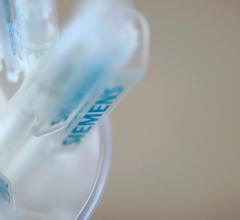
Getty Images
April 20, 2020 — As the United States continues to face the unprecedented public health emergency from the COVID-19 pandemic, some areas of the country are seeing a decline in cases. As states and localities begin to stabilize, the Centers for Medicare and Medicaid Services (CMS) is issuing guidance on how local healthcare systems can resume providing non-COVID-19 care to patients without symptoms of COVID-19 in regions with low and stable incidence of the virus.
CMS announced March 18, 2020, that all elective surgeries, non-essential medical procedures and dental procedures should be delayed during the novel coronavirus (COVID-19, SARS-CoV-2) outbreak. The move was in part to conserve personal protective equipment (PPE), drugs and devices needed for any surge of COVID-19 patients. The second reason was to aid virus containment efforts. With the need to take additional precautions to limit the spread of COVID-19, such as whole room cleaning of CT scanners following a patient scan, the ability to see large numbers of patients at hospitals also decreased.
The moratorium on elective procedures included all types of invasive and non-invasive cardiovascular exams and procedures, effecting all facets of cardiology departments from ECG and echo labs, to interventional and EP labs and cardiovascular surgeries.
The loss of elective procedures and tests has caused some healthcare systems to start laying off works, since these procedures make up the bulk of how hospitals make money.
CMS said this new list of recommendations is part of Phase 1 in the Trump administration’s Guidelines for Opening Up America Again.
“By complying with our recommendations to postpone non-essential elective surgeries, our healthcare system has made a tremendous sacrifice. We owe both those on the frontlines and those who postponed procedures for the sake of their colleagues a profound debt of gratitude,” said CMS Administrator Seema Verma. “Today, some areas of the country are experiencing fewer cases and lower incidence of the virus, necessitating a more tailored and flexible approach. Every state and local official will need to assess the situation on the ground to determine the best course forward, but these guidelines provide a gradual process for restarting non-COVID-19 essential care while keeping patients safe.”
What will be Required for Health Systems to Reopen Normal Patient Care Operations
The new recommendations are specifically targeted to communities that are in Phase 1 of the Guidelines for Opening Up America Again with low incidence or relatively low and stable incidence of COVID-19 cases. The recommendations update earlier guidance provided by CMS on limiting non-essential surgeries and medical procedures. The new CMS guidelines recommend a gradual transition and encourage healthcare providers to coordinate with local and state public health officials, and to review the availability of PPE and other supplies, workforce availability, facility readiness, and testing capacity when making the decision to re-start or increase in-person care.
Prior to entering Phase 1, states or regions need to pass gating criteria regarding symptoms, cases, and hospitals. The CMS recommendations are not meant to be implemented by every state, county or city at this time. CMS said governors and local leaders ultimately need to make decisions on whether they are appropriate for their communities.
Healthcare facilities and providers that are in areas still seeing a higher number of COVID-19 cases are encouraged to continue following the recommendations made by CMS last month. These were issued to expand capacity to care for patients with COVID-19, to reduce the risks of transmission and exposure to patients, and to conserve adequate supplies, especially PPE and manpower during the public health emergency.
CMS said healthcare facilities in some areas may have been stretched to their limits of capacity, and surge areas have been needed to augment care. However, many parts of the country have a low, or relatively low and stable incidence of COVID-19, and it is important to allow flexibility to provide non-COVID-19 healthcare, Verma explained. Both sets of recommendations issued by CMS are based on ensuring doctors are making the ultimate decision about patient care. Providers and patients are still highly encouraged to continue to utilize virtual care for services that can be managed via remote appointments to continue limiting the risk of exposure and spread of this virus.
The new recommendations can be found here: www.cms.gov/files/document/covid-flexibility-reopen-essential-non-covid-services.pdf
The Guidelines for Opening Up America Again can be found here: https://www.whitehouse.gov/openingamerica/#criteria
These actions, and earlier CMS actions in response to COVID-19, are part of the ongoing White House Coronavirus Task Force efforts, with updates at www.coronavirus.gov.
Related CMS COVID-19 Content:
CMS Calls For Postponing All Elective Cardiac Tests and Procedures to Aid COVID-19 Containment
COVID-19 Genetic PCR Tests Give False Negative Results if Used Too Early
VIDEO: Cancelling Non-essential Cardiac Procedures During the COVID-19 Outbreak — an interview with SCCT President Ehtisham Mahmud, M.D.
CMS Expands Medicare Telehealth Benefits During COVID-19 Outbreak
VIDEO: Telemedicine in Cardiology and Medical Imaging During COVID-19 — Interview with Regina Druz, M.D.


 February 20, 2026
February 20, 2026 









